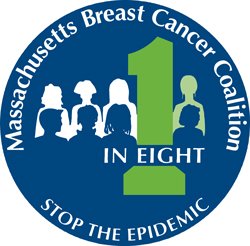 By Dr. Michael Misialek
By Dr. Michael Misialek
Associate Chair of Pathology, Newton-Wellesley Hospital
Assistant Clinical Professor of Pathology, Tufts University School of Medicine
Medical Adviser, Massachusetts Breast Cancer Coalition
In the United States, about 1 in 8 women will develop invasive breast cancer in her lifetime, and more than 40,000 women die yearly from breast cancer. As a pathologist, I diagnose breast cancer far too often. As a medical adviser to the Massachusetts Breast Cancer Coalition, I understand the importance of prevention. This is finally being recognized in the medical community.
In an effort to promote a better understanding of the importance of toxic exposures and breast cancer, Massachusetts Breast Cancer Coalition (MBCC) launched the Let’s Talk Prevention: Reducing Toxic Exposures program. MBCC is helping facilitate the discussion between health professionals and patients about environmental exposures and chemicals of concern. Many chemicals of concern are industrial chemicals that do not stay isolated inside factories. Minimizing exposure to chemicals linked with negative health impacts can lessen the burden of disease and improve public health.
To make this important public health topic more palatable, MBCC has created a booklet for health professionals and a medical brochure for patients. These documents are available for download and are intended to be used in tandem.
As a health professional, I believe that the Let’s Talk Prevention: Reducing Toxic Exposures medical booklet offers providers a wealth of resources to communicate with patients, evaluate and assess a patient’s exposure history, and further understand the effects and impact of common chemicals of concern.
For the informed patient, the Let’s Talk Prevention: Reducing Toxic Exposures brochure can help manage the risk of toxic exposure. This patient brochure, which is available in English, Spanish, Chinese, Japanese, and Portuguese, provides basic steps to reduce toxic exposures in the home and enables patients to choose safer alternatives to harmful products used daily.
The majority of breast cancer research has traditionally focused on treatment and screening while funding for prevention lags far behind. A far greater benefit in lives saved would be realized from efforts directed towards prevention. Additionally, the financial impact is much greater. It is less expensive to keep a patient healthy and out of the hospital.
To download the Let’s Talk Prevention: Reducing Toxic Exposures Medical Booklet for Health Professionals and the Brochure for patients, please visit the Let’s Talk Prevention Tab on the Massachusetts Breast Cancer Coalition webpage: www.mbcc.org.
There is reason for optimism. Research into prevention is gaining momentum. Help keep progress moving forward. Please consider helping support MBCC in its efforts to end the breast cancer epidemic.
